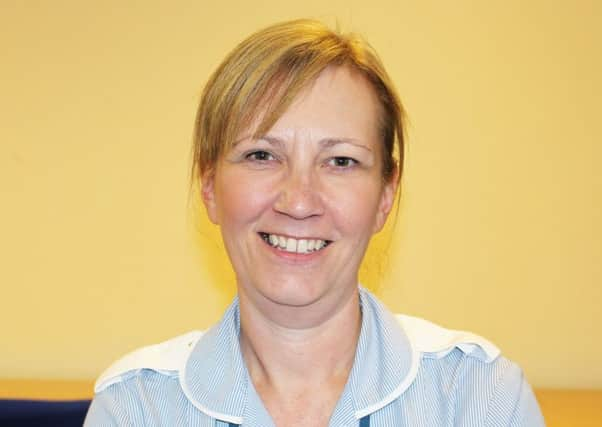Nurse Janine trains as ‘advanced practitioner’


Janine Hood, who lives in Rosehill, has been awarded an MSc in Advanced Practice qualification after two years studying at the University of Central Lancashire (UCLAN).
East Lancashire Hospitals NHS Trust chief nurse Christine Pearson said: “We are incredibly proud of Janine and all our new advanced practitioners who are an inspiration to all nurses.
Advertisement
Hide AdAdvertisement
Hide Ad“Janine has proven herself to be a leader, committed to improving the quality of nursing care and patient safety, and raising health standards through greater medical knowledge.”
Born and raised in Haslingden, the former Haslingden High School pupil qualified as a registered general nurse (RGN) in 1993 before working on general medical wards at Burnley General Hospital.
Janine developed an interest in asthma, allergy and COPD to become a specialist respiratory care nurse and a ward manager on a respiratory ward at the Royal Blackburn Hospital.
In 2005, she helped set up the East Lancashire Integrated Respiratory Service, a community service for respiratory patients which now employs 19 staff.
Advertisement
Hide AdAdvertisement
Hide AdShe said: “Two years ago the opportunity to apply for the two-year MSc within the respiratory service presented itself. I applied and was successful in securing the post. It has not been an easy qualification to obtain, and my social activities were drastically reduced, and replaced with studying.
“But I was lucky enough to have a tremendous amount of support and understanding from my husband and family. I have also found the support of the other trainee advanced practitioners and my colleagues invaluable.”
A major part of Janine’s MSc work was her work with patients living with idiopathic pulmonary fibrosis (IPF), a chronic, progressive disease affecting 5,000 people in the UK every year and whose average survival is between three and five years.